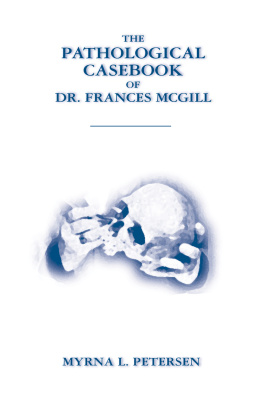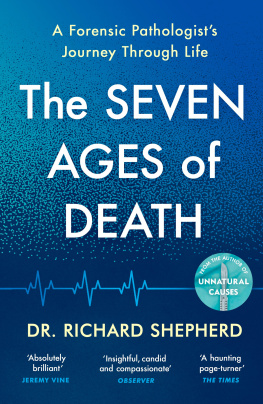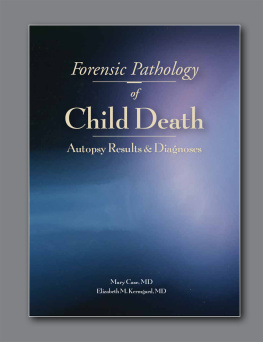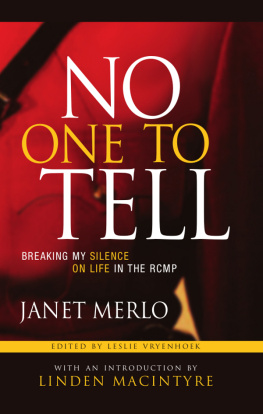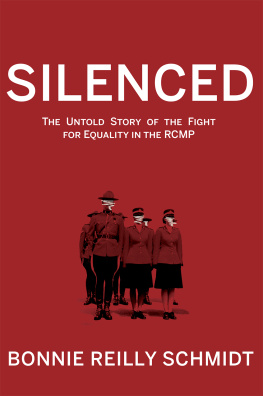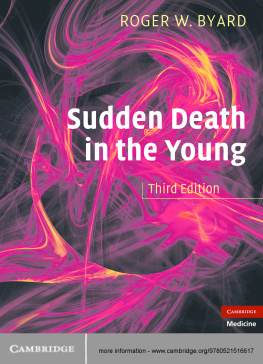Myrna L. Petersen, 2005
All rights reserved. No part of this publication may be reproduced, stored in a retrieval system or transmitted, in any form or by any means, without the prior written consent of the publisher except for newspaper and media reviews.
Edited by Nancy Schalm.
Cover design by Gavin Stewart.
Printed and bound in Canada.
National Library of Canada Catologuing in Publication Data.
ISBN: 9780973889307
First Printing: September 2005
Ideation Entertainment, Publisher
711 Royal Street
Regina, Sask. S4T 4Z3 Canada
The publisher gratefully acknowledges the financial assistance of the Saskatchewan Heritage Foundation.
Dedication
This book is dedicated to the memory of Peggy Horne (1910-2003)
who introduced to me to this legendary lady and who spent countless hours recounting tales of her wonderful works.
Acknowledgments
It was 1986 when I experienced one of those rare conversations which one remembers their lifetime. She was an elderly hospital volunteer and I, an employee in Reginas Pasqua Hospital Admitting Department.
Gesturing towards the Specimen Lab across the hall where technicians were drawing blood from patients, she said, I use to do that, and began to tell a story that I would never have believed came out of Saskatchewan.
She continued, I was a Lab technician years ago and I assisted Dr. Frances McGill when she did autopsies all over the province. As she elaborated, I immediately knew this story was one of Saskatchewans hidden treasures just waiting to be mined!
What started as a simple conversation turned into a close friendship. Peggy constantly inspired and challenged me to dig deeper to find the gold nuggets of history involving Dr. Frances McGill in her legendary work. Peggy produced a few old newspaper clippings, most notably a 1955 article from Weekend Magazine headlining Dr. McGill as, One of Canadas best-known criminologists.
After digging through old newspapers, the Saskatchewan Archives, the Saskatchewan Public Health and Laboratories Annual Reports, and Dr. Frances McGills Royal Canadian Mounted Police (R.C.M.P.) file, a framework of her life was beginning to emerge.
A visit to the Battleford Court House gave additional information on the Straw Stack Murders case. A trip to Ottawas National Archives gave me access to Criminal Case files of Persons Executed from Saskatchewan. During court proceedings the accused often faltered in English and Translators were brought in. Since several chapters in this book contain material obtained directly from original court documents the dialogue often appears as broken English.
I am grateful to the Ed McGill family from Brandon, Manitoba for their help in piecing together Frances McGills latter years. Thanks to the many friends who kept encouraging me that this is a story which needs to be told.
A special thank-you to a former Saskatchewan resident, Nancy Schalm from Orlando, Florida who spent many hours editing and e-mailing files back and forth. Her writing expertise helped take this manuscript from lying in a drawer to a book sitting on a shelf!
Specifically I want to acknowledge the many hours of proofreading done by Bonnie Wiesner and by my sister Jo-Ann Mohr. Thanks also to Gavin Stewart for designing the book cover, and to long time friends Josie and Al Beaulieu for their support of this project.
I would like to acknowledge the generous financial contribution of the Saskatchewan Heritage Foundation for the printing of the book. Thanks also to SaskFilm for their support in the research of The Straw Stacks Murder case.
In this 2005 Saskatchewans Centennial Year, I would also like to remember the countless builders of this great province. There are many, which like Dr. Frances McGill selflessly gave of their talents to improve the community around them. In particular, I applaud my deceased parents, Carl and Juliet Petersen, who were life-long residents of the Rose Valley district. Your guidance and input left me with many riches and Im proud to say, Thanks Mom and Dad.
TABLE OF CONTENTS
PROLOGUE
A Nurse at the Winnipeg General Hospital is given a letter and told to immediately deliver it. The exclusive Canadian return address catches her attention. This is no ordinary patient.
Heads turn at the rapid click of her heels as she walks down the hospital corridor. Pausing at the door, she knocks lightly. After a respectful moment of silence she opens the door slowly and leans into the dim light. The sound of labored breathing fills the room. In the shadows, the pale face of a gray-haired woman appears noble in spite of the apparent state of impending death.
The Nurse checks the name over the bed with that on the letter. They match. She looks again at the letter in her hand and back to the sleeping woman. Should she wake her up or should she just leave the letter on the night table?
A frail hand clenches the top-sheet just over the womans heart. Suddenly the hand moves as if to clench tighter but lacks the strength to accomplish its objective. The watery blue eyes fight to focus in response.
Holding the letter up for the old woman to look at, the Nurse says, You have a letter and its from the highest office in the country.
The eyes close, the hand relaxes its grip on the sheet and the hint of a knowing smile spreads across the wrinkled face.
CHAPTER ONE
FIGHTING THE KILLER BUGS
Frances Gertrude McGill faced killer bugs from an early age and was determined that she would do everything in her power to defeat them. She was born on November 18, 1882 in the Fairmount district, northwest of Minnedosa, Manitoba. Her trail blazing parents, Edward and Henrietta taught their children to fearlessly attempt new and exciting challenges.
Henrietta Wigmore was a tiny woman but her adventurous spirit belied her size. Prior to her marriage she became a school teacher and taught public school both in Ontario and New Zealand. She traveled to New Zealand via England and around the Cape of Good Hope and returned to Canada by the way of Fiji, Hawaii and California. That round-the-world passage was an astonishing feat in those days for a single woman.
Edward McGill knew how to charm women and upon Henriettas return to Canada she settled down with this community minded homesteader. He kept active with the local school board, the Minnedosa Agricultural Society and as a Reeve for his Municipality. For several years, the Fairmount Post-Office was located on their homestead and Edward served as the Post-Master.
With a church and school nearby, Henrietta made sure their four children started their education. The Fairmount district had the markings of a thriving community, however it soon declined when the railroad was established a few miles beyond.
It was Edward and Henriettas adventurous character traits that turned out to be the greatest gift their young family would inherit. That inheritance came to the young McGill siblings in a frightful and unexpected manner. In September 1900, Edward and Henrietta attended the Brandon County Fair. What was considered a most important event in the province of Manitoba turned out to be a devastating turning point in all of their lives. At the Fair, both parents had a drink of untreated water. They became violently ill and within two weeks of each other, Edward and Henrietta McGill died due to germs hidden in the contaminated water.
After the abrupt death of their parents, three of the four siblings pursued medical careers in their attempts to eradicate killer bugs. Herbert, the eldest son, looked after the farm until his brother and sisters completed their education. Only then did Herbert leave the homestead and become a successful bank manager and businessman. A family joke was later established that Herbert should become an undertaker so he could cover up the medical mistakes the rest of the family members made.

